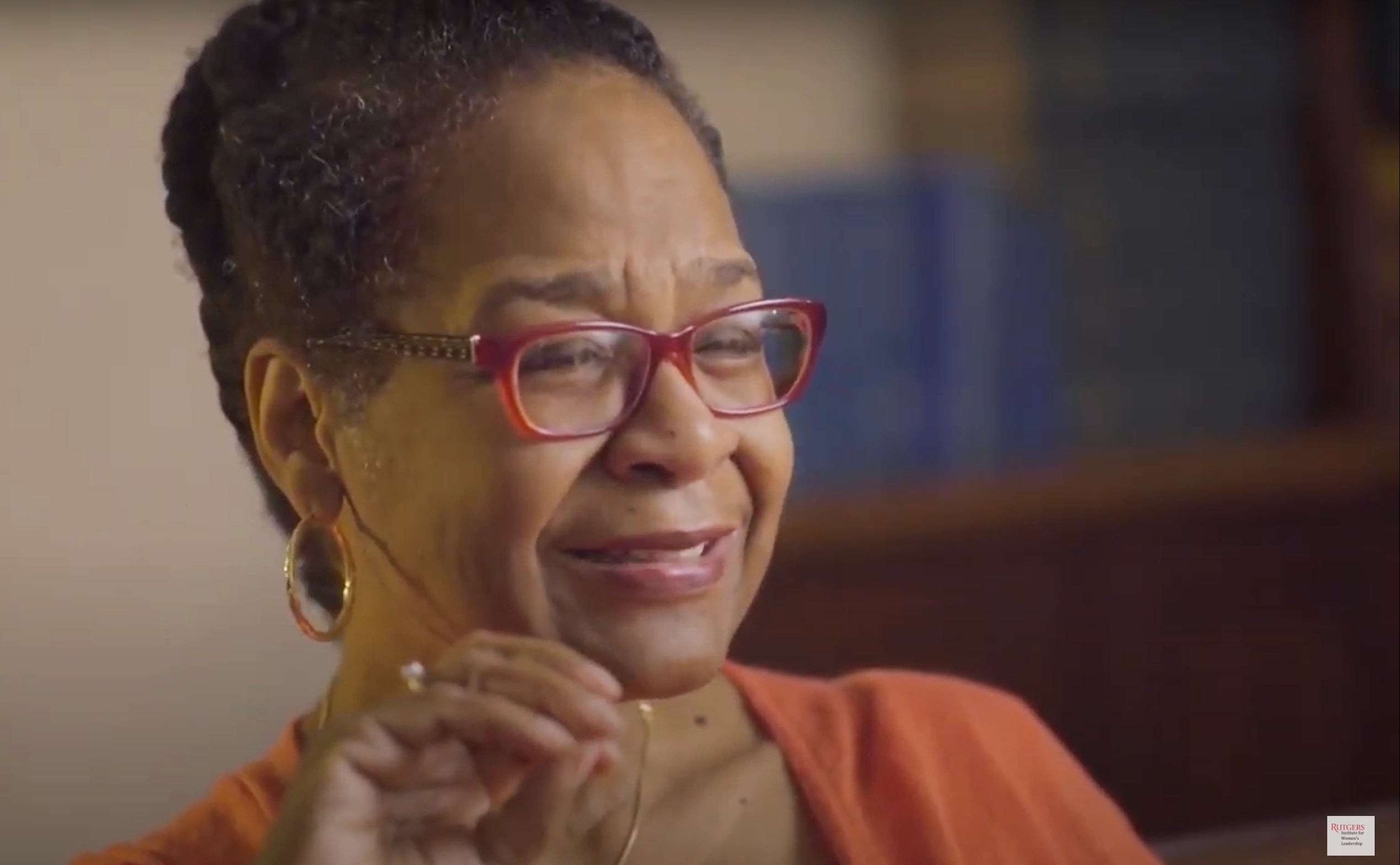“What does it mean for a black woman to work in the U.S. academy today?” This is the question longtime Rutgers University professor and author Cheryl A. Wall posed while introducing a panel of black female academics in 2009. It was a question central to Wall’s career and life’s work, as she strove to make both the study of English literature and the often exclusive realm of academia more inclusive of black women.
Suggested Reading
After nearly five decades of this work—almost all of which were spent teaching at Rutgers in New Brunswick, N.J.—the New York Times reports that on April 4, Cheryl A. Wall died of complications from an asthma attack at her home in Highland Park, N.J., according to her daughter, Camara Epps. Dr. Wall was 71.
A graduate of Howard University with a doctorate from Harvard, the Queens, N.Y.-bred educator was was one of the first black women to lead an English department at a major research university—and the first to make African-American literature a required course for Rutgers’ English majors. A champion of diversity, Dr. Wall was a co-founder of the Rutgers English Diversity Institute, a leader of the university’s Institute for Women’s Leadership, and was only weeks shy of her retirement at the time of her death.
The Times reports a symposium planned to honor Wall’s legacy at the university by her colleague and mentee, Pulitzer Prize-nominated poet Evie Shockley had been postponed due to the coronavirus outbreak.
Wall is widely credited with helping to bring broader recognition to Zora Neale Hurston’s work, editing two volumes by the now-famed author and publishing two additional books of criticism on Hurston’s literary contributions. She was named the Board of Governors Zora Neale Hurston professor in 2007. Wall also advocated for other black women writers as essential reading within the predominantly white male canon of English literature, promoting their works in her own books: Changing Our Own Words: Criticism, Theory, and Writing by Black Women (1989); Women of the Harlem Renaissance (1995) and Worrying the Line: Black Women Writers, Lineage, and Literary Tradition (2005).
“In a period when black women writers were publishing, being recovered and receiving national attention in greater numbers than ever before, Cheryl found it possible to make a 45-year career of helping to ensure that these writers and their writings are valued in all of their power, genius and complexity,” said Shockley.
Similarly, Wall brought attention to the prolific talents of the Harlem Renaissance and the rich and complex narratives wrought from the black experience in America. In her 2018 book, On Freedom and the Will to Adorn: The Art of the African American Essay, she wrote (h/t the New York Times):
“From its earliest iteration, the African American essay endorsed the democratic ideals the nation professed, while condemning its failure to fulfill them.”
Describing Wall as “a leading, pioneering scholar of African American women’s literature,” The Root’s co-founder, Director of Harvard University’s Hutchins Center for African and African American Research Prof. Henry Louis “Skip” Gates Jr. told the Times via email:
“[Wall’s] scholarly work was characterized by the careful, meticulous attention to detail of a great literary historian and the exquisite mastery of form that marks the work of our best literary critics—a combination all too rare among scholars of American literature today.”
Wall’s remarkable literary activism will live on in both her published works and indelible presence at Rutgers, where she’d been on staff since 1972. But as her colleague, scholar, author and “crunk feminist” Brittney Cooper (Beyond Respectability, Eloquent Rage, The Crunk Feminist Collection) shared with The Root via Messenger, Wall’s most enduring legacy may be the path she gladly paved for other black women in academia.
I am still in disbelief that Cheryl is gone. I was a student of her scholarship long before I met her, and I chose my current job in part because I wanted to work at the institution where she worked. She was a friend, a mentor, and a model colleague. I remember that when I came to Rutgers, she heard about my work with the Crunk Feminist Collective. She found me at a gathering and we laughed about how diligently she had been researching to figure out just exactly what ‘Crunk’ was. She was interested in and curious about younger scholars, always gracious to us and figuring out deliberate ways to make room for us, citing us in her work, writing copious recommendations for us. Academe is a profession that steals a lot from Black women, but she managed to navigate it with generosity and care in every single interaction. Cheryl loved Black women and Black people and she modeled an ethic of care that allowed her to turn structural noes into institutional yeses and pathways. I am forever grateful.
With our collective gratitude, rest in power, Dr. Wall.
Straight From 
Sign up for our free daily newsletter.



